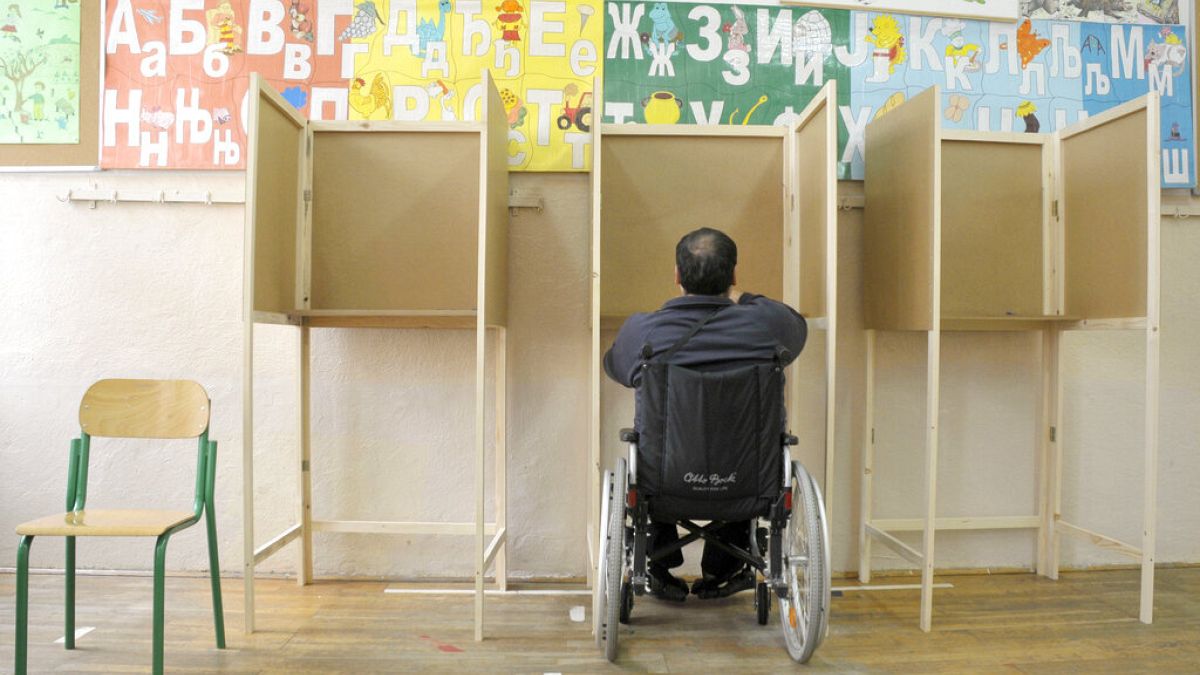Report shows voters with disabilities still face difficulties voting across the EU and will be hindered in upcoming elections.
Member states have made significant inroads on accessibility since the 2019 EU elections but remain a long way from ensure equal participation for voters with disabilities, according to a report by the European Agency for Fundamental Rights (FRA) published this week.
All 27 EU member states have signed and ratified the Convention on the Rights of Persons with Disabilities, aimed at promoting, protecting and ensuring full and equal human rights for all persons with disabilities.
Under the convention, member states should guarantee that elections are designed and conducted considering different types of disabilities.
The report said that this is not the case in 15 European countries – Bulgaria, Croatia, Denmark, Estonia, Germany, Greece, France, Hungary, Latvia, Lithuania, Luxembourg, Poland, Portugal, Slovakia and Spain – where hindrances obstruct those with disabilities from voting. The barriers range from inaccessible voting venues to restrictions to vote for people under legal guardianship.
Several accessibility measures can be implemented to ensure this, related to actual voting and – before election day – to communication campaigns and information websites.
Some measures to improve this situation are already being introduced in Belgium, Finland and Poland, for example, where transport is provided – or its costs covered – for some seeking to vote.
Other suggestions touted by the report include introducing audio description technology and ballots in Braille for people with visual disabilities, subtitles, text transcripts and captions for deaf people or people with hearing impairments and clear comprehensible information for people with intellectual disabilities.
Challenges often affect the outset of the electoral process, however, hindering some from understanding basic information about the elections, either on websites of the different political groups or public government portals.
Despite a European Commission 2021 directive designed to ensure member states’ public sector websites and mobile apps are accessible to people with disabilities, only three member states – Austria, Finland and France – public websites providing instructions to vote and information on candidates meet the new accessibility standards.
According to the European Commission, around 87 million people in the EU have some form of disability and Eurostat reports that in 2022, 27% of the EU’s population over 16 years old reported limitations on their usual activities due to health issues.
Work is still needed at the national and European level to develop new laws that “don’t treat us like second-class citizens”, said Alejandro Moledo, deputy director at the European Disability Forum.
“It makes me feel mad because I feel like I’m not doing my civic duty and making sure my voice is heard and my opinions taken into account. It makes me very angry,” said Soufiane El Amrani, a Belgian who voted in 2014 election, but has been prevented from so doing since being placed under legal guardianship in 2016.
“They’re afraid that they [people with disabilities] will make the wrong choices,” he said, adding that often people think that if someone has a disability and needs help they don’t know how to vote.

